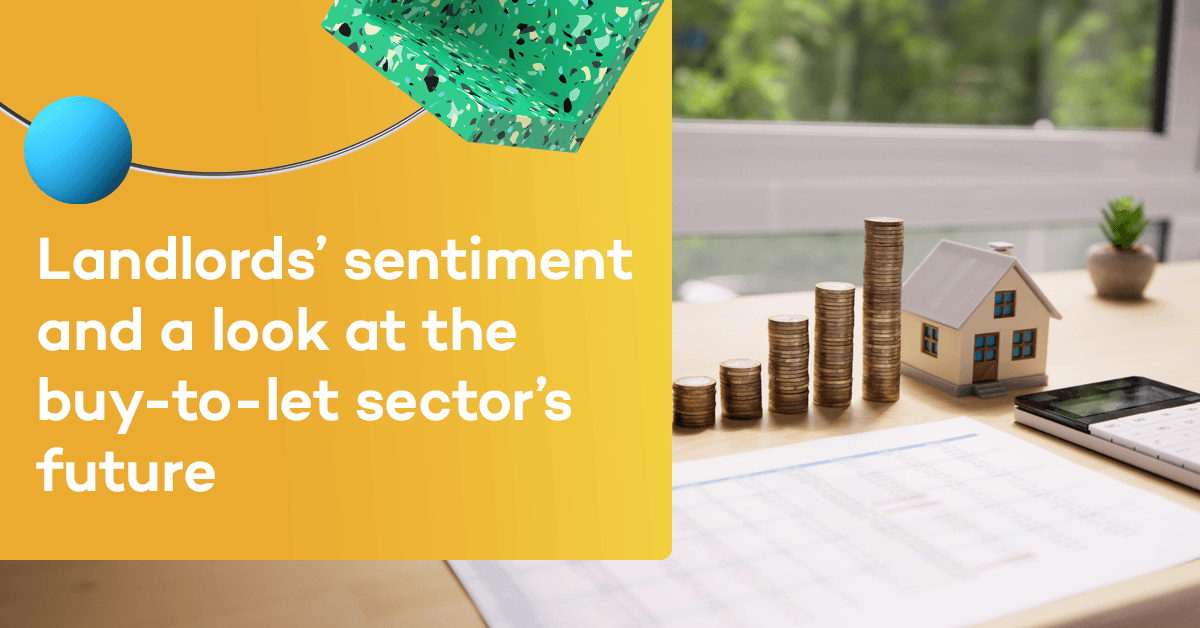Blog, Featured
Landlords’ sentiment and a look at the buy-to-let sector’s future
5 September 2024
In a year marked by significant change, we sought to understand how landlords feel about their future and what this means for the buy-to-let sector. To gain insights, we conducted a comprehensive survey in May with over 1,100 landlords, exploring a wide range of topics, including rent trends, buying and selling, and property management. Our goal was to capture landlords’ hopes, concerns, and perspectives on the market.
The key takeaway from the survey was that most landlords remain optimistic about their long-term prospects. Despite some short-term concerns, many see themselves as committed players in the market for the foreseeable future. The ongoing strong demand for rental properties drives this optimism.
Notably, fewer landlords expressed negative sentiments compared to our last survey, with a marked decrease from 37% feeling negative at the end of last year to 27%. While 40% of landlords maintained a neutral stance, nearly 33% felt optimistic about their outlook.
However, landlords are still concerned. Some anxiety, particularly around short-term uncertainties, was evident. For instance, the government changes stirred some apprehension, primarily as the survey was conducted during a period of speculation about the timing of the next General Election. Additionally, there were frustrations over perceived negative portrayals of landlords in the media and political discourse.
Despite these concerns, nearly half of the landlords surveyed expressed plans to purchase more property within the next 12 months. This represents a significant increase, with 44% planning to invest, up from 32% in our previous survey. The primary motivation for these purchases was to expand their property portfolios.
One landlord looking to buy noted, “I anticipate a rise in house prices. I’m focused on growing my property portfolio.” This sentiment was most common among larger portfolio landlords, with 40% of prospective buyers owning 11 or more properties, and 42% owning between four and 10 properties.
Long-term confidence also explains why a growing number of landlords prefer the stability of fixed-rate mortgages. A significant 71% indicated they would choose a five-year fixed rate when remortgaging, up from 49% in our last survey. Additionally, preferences for even longer-term fixes of seven or 10 years saw a slight increase, with 6% of landlords leaning toward this option, compared to 4%.
Among those opting for a five-year fixed rate, the majority were landlords operating through limited companies (71%), with the largest share of these (42%) being those with portfolios of four to 10 properties.
Portfolio landlords were also the most likely to raise rents. While many landlords plan to increase rents over the next year, nearly half of those planning hikes (42%) were landlords with four to 10 properties, followed by those with 20 or more properties at 28%.
Interestingly, despite facing increased local authority regulations, HMO landlords showed the highest level of confidence in their business prospects. Over 43% of these landlords felt positive, with just under 30% feeling negative.
Rent increases are on the horizon, with more than a third (36%) of landlords planning to raise rents by up to 5%, up from 27% in our previous survey. Meanwhile, 37% intend to increase rents by between 6% and 10%, closely mirroring the findings of the last survey (38%).
Today’s market dynamics mean landlords must account for higher interest rates and operating costs, with these factors being significant drivers behind planned rent increases. Notably, many landlords now treat property management as a full-time career, with over half managing their properties full-time. Among HMO landlords, half rely on their property or portfolio as their sole source of income.
However, self-managing landlords often face higher management costs, spending a significant portion of their rental income on property management.
In conclusion, our survey highlights that buy-to-let remains an attractive long-term investment strategy. With housing affordability still, a challenge for residential buyers and rental demand outstripping supply, there is a solid and enduring demand for rental properties across the country.
As one landlord aptly put it, “While the world is uncertain, the demand for residential property and accommodation is, and will remain, very high.”
However, the Government must continue to foster confidence among landlords to alleviate short-term concerns and retain their participation in the market.
As a dedicated buy-to-let lender, we remain optimistic and committed to meet the evolving needs of landlords.
Visit our full product range here.
